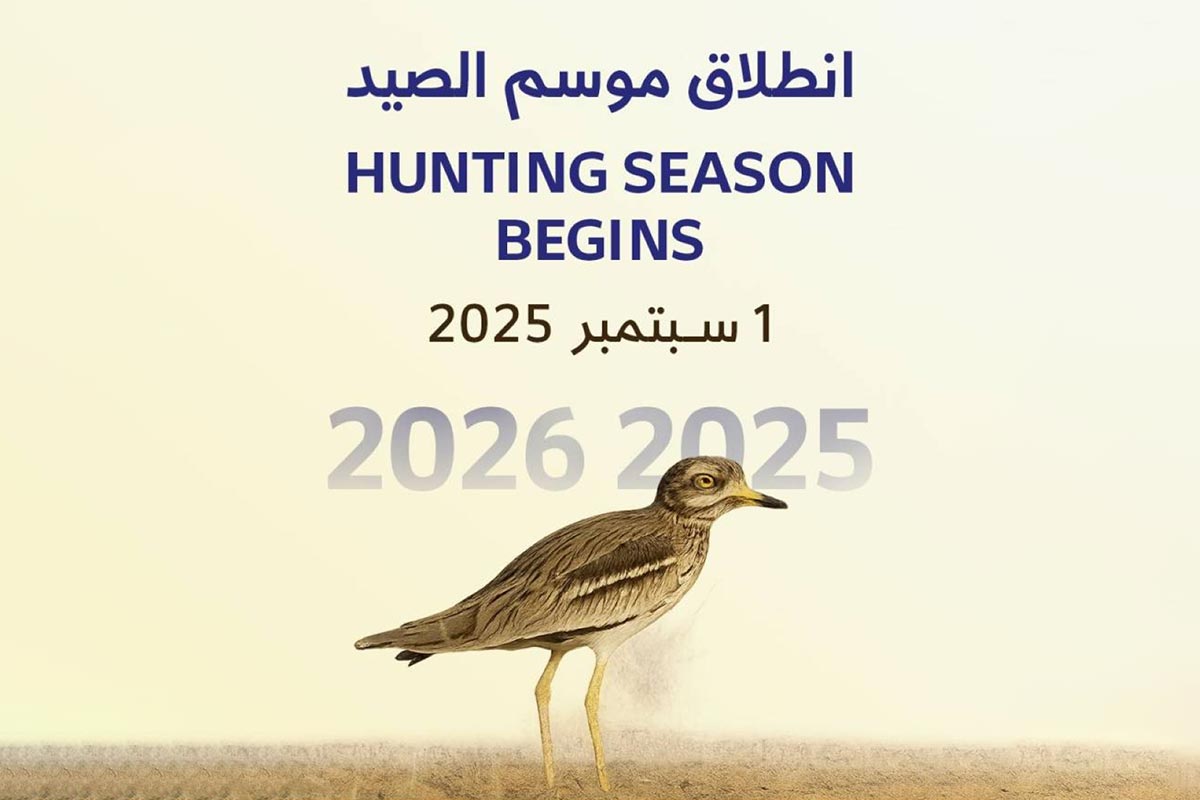
Qatar Ministry of Environment Issues Hunting Season Rules to Conserve Biodiversity
01-09-2025
The Ministry of Environment and Climate Change in Qatar has announced Ministerial Decision No. 26 of 2025, regulating the hunting season for birds and wildlife. The decision outlines strict controls to preserve biodiversity and ensure the sustainability of wildlife resources in the country. Under the new rules, the hunting season for migratory birds such as Al-Laffo begins on September 1 and continues until February 15 each year, effective for two years from the date of implementation. As part of the regulations, hunting the houbara bustard is permitted only with falcons, while the use or trade of non-traditional hunting tools—including electronic calling devices—is strictly prohibited. The Ministry also emphasized that hunters must avoid harming bird eggs, nests, or wild plants. Hunting is allowed only from sunrise to sunset, and the sale, trade, or circulation of hunted birds remains completely banned. Hunting is also restricted in several protected areas, including nature reserves, islands, artificial lakes, public parks, and within cities or villages. It is further prohibited within 500 meters of public roads, as well as on private properties and farms unless permission is granted by the owners. The decision listed species that can be legally hunted in 2025–2026, such as stone curlew, mallard, blue rock thrush, song thrush, chiffchaff, hoopoe lark, and various wheatear species. At the same time, Article Three prohibits the hunting or possession of many resident and migratory species, including hares, gazelles, ostriches, hedgehogs, jerboas, spiny-tailed lizards (dhub), and monitor lizards, among others, for the next two years. The Ministry confirmed that violators of the new hunting law will face penalties under Law No. 4 of 2002 on Environmental Protection, urging the public to comply with the guidelines to protect Qatar’s wildlife and preserve its natural heritage for future generations.



